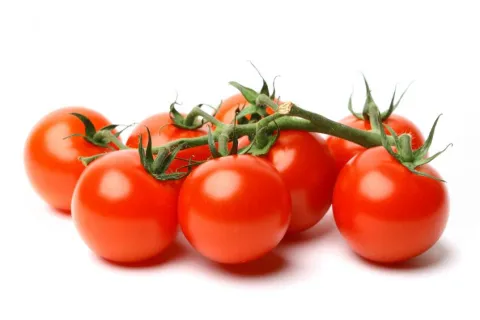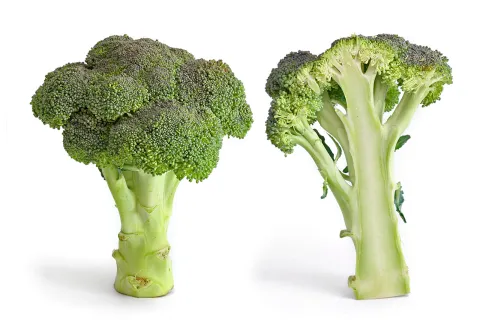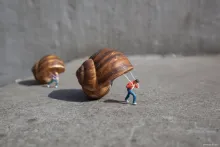Enlarged Board of Appeal: plants and animals cannot be patented after all
May 15, 2020
Plants and animals exclusively obtained by essentially biological processes are not patentable. That is the opinion (G 3/19) of the Enlarged Board of Appeal of the European Patent Office (EPO).

The decision, triggered by a referral from EPO president António Campino in April 2019, is the latest and not unlikely the final one in a debate which has been running for years about the issue.
It is contrary to earlier decisions in the so-called Broccoli-II and Tomato-II cases (G 2/12 and G 2/13) of 2015. In these, Enlarged Board of Appeal ruled that ‘plant products such as fruits, seeds and parts of plants are patentable even if they are obtained through essentially biological breeding methods involving crossing and selection.’
After this decision, the European Commission issued a Notice in 2016, indicating that the Biotech Directive 98/44 should have been interpreted as that plants obtained by essentially biological processes are not patentable. Taking into account this notice, the EPO Administrative Council amended its Regulations in 2017.
In vain however, it seemed: on 5 December 2018, the BoA decided in case T 1063/18 that EPC Rule 28 (2) which was introduced by the EPO Administrative Council in 2017 to exclude plants or animals from patentability, was in conflict with 53(b) of the European Patent Convention and therefore to be considered void.
This created a lot of legal uncertainty and a few months later, the EPO president referred the decision to the EbA. According to a press release, the aim was ‘to obtain an opinion (…) on the patentability of plants exclusively obtained by essentially biological processes, hereby considering recent legal developments (interpretations and statements of the European Commission, the EU Council, European Parliament and EPO’s Administrative Council on the interpretation of the European Patent Convention and the EU Bio-Directive, all of them concluding that there should be no patentability in these cases).’
As is explained in the EPO’s press communiqué, “the Enlarged Board endorsed its earlier findings on the scope of Article 53(b) EPC, which were based on the classical (i.e. the grammatical, systematic, teleological and historical) methods of interpretation. However, the Enlarged Board found that a particular interpretation which has been given to a legal provision can never be taken as carved in stone, because the meaning of the provision may change or evolve over time. This meant that decisions G 2/12 and G 2/13 did not settle the meaning of Article 53(b) EPC once and for all.
Taking account of the Administrative Council's decision to introduce Rule 28(2) EPC, the preparatory work on this provision and the circumstances of its adoption, as well as legislative developments in the EPC contracting states, the Enlarged Board concluded that new Rule 28(2) EPC allowed and indeed called for a dynamic interpretation of Article 53(b) EPC.
In adopting this dynamic interpretation, the Enlarged Board abandoned its earlier interpretation of Article 53(b) EPC in decisions G 2/12 and G 2/13. It held that, after the introduction of new Rule 28(2) EPC, Article 53(b) EPC was to be interpreted to exclude from patentability plants, plant material or animals, if the claimed product is exclusively obtained by means of an essentially biological process or if the claimed process features define an essentially biological process.”

“In order to ensure legal certainty and to protect the legitimate interests of patent proprietors and applicants, the Enlarged Board ruled that the new interpretation of Article 53(b) EPC given in G 3/19 had no retroactive effect on European patents containing such claims which were granted before 1 July 2017, or on pending European patent applications seeking protection for such claims which were filed before that date.”
You may also like















LightBlue
I wonder how the German Federal Constitutional Court would react if the legislators came up with a law requiring the constitution to be interpreted in a particular manner, contrary to earlier decisions of the FCC. That is effectively the situation which the EBA has indicated is an acceptable one.
Concerned observer
Whilst this decision might bring "greater legal certainty" with respect to the patentability of plants, it generates numerous other areas of legal uncertainty. Firstly, how can the Boards of Appeal of the EPO demonstrate that they are an INDEPENDENT judicial instance, as required, for example, by TRIPS? The members of the Boards of Appeal are subject to the disciplinary and reappointment authority of the AC. This calls into question whether it is possible for any decision of a Board of Appeal that finds an absence of conflict (in the sense of Article 164(2) EPC) to avoid perceptions of partiality in favour of the AC ... who will, of course, have authored the allegedly "conflicting" Implementing Regulation. Secondly, as the EBA correctly observes, the Court of Justice of the EU has not yet interpreted Article 4(1)(b) of the Biotech Directive. Thus, in view of the appeal decision in the Taste of Nature case, Article 267 TFEU means that any "final" judicial instance that is inclined to reach a contrary conclusion (that is, to reach the same conclusion as in G 3/19) MUST make a preliminary reference to the CJEU. Thus, given that the Boards of Appeal have previously decided that they are unable to participate in the preliminary reference procedure, how can the Boards apply the ruling in G 3/19 without contravening EU law? In other words, the ruling in G 3/19, whilst "resolving" a point of law that will be of relevance to a vanishingly small percentage of applicants, has simultaneously drawn attention to fundamental weakness of the EPC that now require urgent attention. Perhaps this can serve as a reminder of the danger of unintended consequences.
Attentive Observer
Concurring with Concerned Observer, it is necessary to say goodbye to the independence of the EBA, and hence to that of the BA. The EBA played the game wanted by the administrative council and the president. I cannot imagine the CJEU rewriting a prejudicial question referred to it in order to give a politically correct reply wished by the commission or a member state. I always thought that a court cannot decide ultra petita, but that is exactly what the EBA did. This decision is disastrous to say the least. That laws may be amended with time in order to bring it in line with evolving societal criteria is not at stake. That the interpretation of the EPC by the EBA might not have been the best one in its decision about broccoli and tomatoes, is one thing. At the time it was accepted. But to behave as the EBA did now is flabbergasting. The only clean way to deal with the problem raised was an amendment of Art 53, b). So rather than do what would have been legally necessary, the EBA is now accomplice of those wanting to amend the EPC without using the proper mechanism. Was the fear of its members not being reappointed so great that the EBA gave in? I can see such changes also being adopted for other fundamental aspects. At least the members of the EBA ruling in G 3/08 had the guts to resist the then president. I would not see any Machiavellian plot followed by the EBA, rather sheer lack of spine. But at least the question of the independence of the Boards is now on the table, and the problem has to be tackled urgently. The reforms introduced in 2016 have to be scrutinised again. Rather than increasing the independence of the Boards they did the contrary as we have now seen with G 3/19. By the way, when will a conference of ministers in charge of IP as provided in Art 4a EPC2000 be summoned? This could have been a perfect topic for such a conference. That the previous president did not like it, and the new one even so, is not a compelling reason. But for this the tail should not be wagging the dog. Techrights and zoobab: FINGERS OFF!!